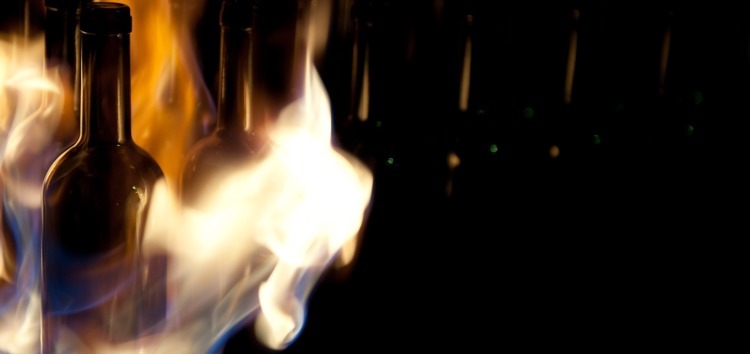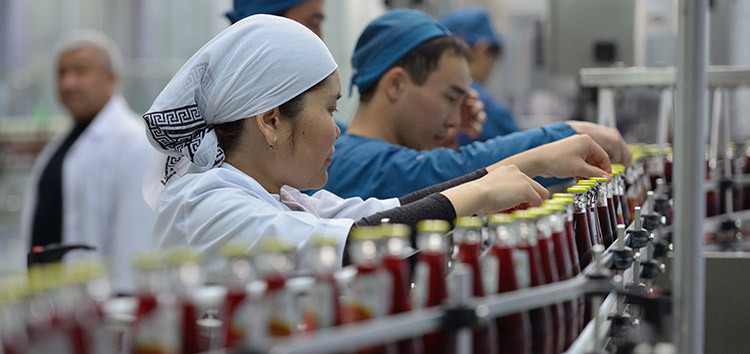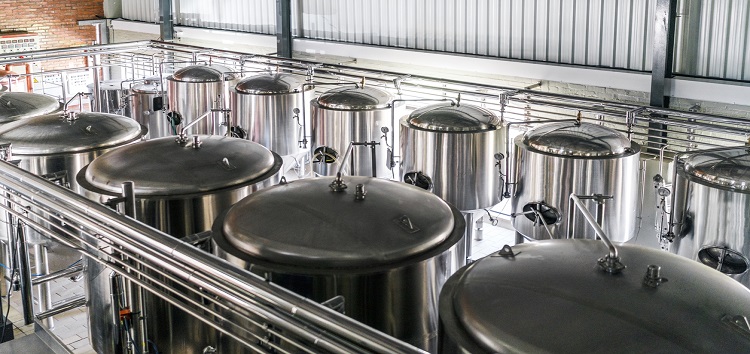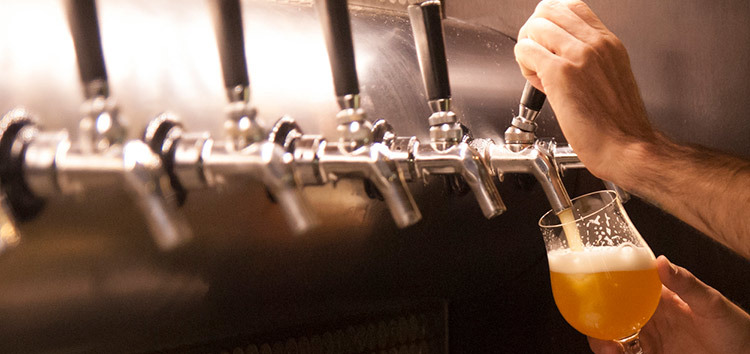FINTECC Supports Modernization of the Largest Glass Bottle Producer in Moldova

With EBRD support Glass Container Company is set to open new export markets and to reduce its carbon footprint
Boris Crivoi has a dream: to amble through the vast warehouse of his bottle factory's warehouse in Chișinău and see only empty shelves: the company's product completely
sold out with orders for more already in hand. Crivoi works as the Chief Financial Officer of Glass Container Company (GCC), the largest glass bottle producer in Moldova. And his dream may come true soon, with the support of the FINTECC Programme.
GCC was established in 1995 with EBRD support. It produces green glass bottles for wines, sparkling wines, olive oils and beer. The company cooperates with almost all Moldovan wine producers and with such international beer brands as Efes, Stella Artois and Tuborg. GCC’s annual capacity is 50.000 tons or 100 million glass bottles.
Twenty-two years later, the EBRD is supporting GCC once again as part of its FINTECC Programme. A loan of €7.5 million and an incentive grant of €386.000 will finance the modernization of the GCC glass factory and will help to significantly improve the quality of the produced bottles, opening up new markets. Meanwhile, FINTECC technical support will make sure that the implemented improvements bring significant energy and material savings for the company.
Guidelines for technical improvements
As a first step, FINTECC enabled a comprehensive energy audit and report of the GCC production process by a leading glass technology consultancy. According to Crivoi, this report offered major guidelines and a list of recommendations on improvements. The key measures that are now being implemented within the FINTECC project include a complete reconstruction of the melting furnace and a replacement of two 20-year old production machine-lines.
One recommendation has already been successfully implemented. One of the key raw materials in glass production is broken recycled glass - cullet. When added to a glass batch, it allows the material to reach the melting point at a lower temperature and to thus reduce consumption of gas. Since sourcing the cullet was difficult in Moldova, GCC started importing it from Romania, where interest for recycling broken glass is high. “Every 10% replacement of a batch by cullet gives you a net 2-3% saving in gas consumption”, says Crivoi. “If you add 20% cullet, you save another 6% of gas. And that is an important saving for our company, which consumes about 12 million m3 of gas per year.”
Innovative technology reduces carbon footprint
Yet, the biggest innovation will be the installation of the Narrow Neck Press and Blow (NNPB) technology, which allows control and reduction of the thickness of bottles and reduction in their weight of up to 30%. "Glass is a heavy product. Therefore, the longer the distance you transport glass, the higher its final price for the consumers”, says Crivoi “With the FINTECC support, our bottles will become lighter and we will consume 20 to 30% less energy per produced unit. That is a direct positive impact on the environment”.
But, the NPBB technology also brings indirect savings and benefits to the environment. “Since the glass gets thinner, we can transport more at a time, say 30.000 bottles instead of 26.000”, says Crivoi. “Our clients can recycle 20.000 bottles as eight tonnes, and not as 10 tonnes previously. That is another competitive advantage for us in sales to more distant markets.”
GCC will be the first company to use the NNPB technology in Moldova and will serve the local market with lightweight glass which is currently being imported. This will lead to fuel savings and will contribute to reducing carbon footprint in Moldova, the world’s 20th largest wine producer. Overall, the installation of the NPPB technology is set to result in 1.350 MWh of electricity savings or 2.950 tonnes of CO2 emission savings per year. The total CO2 savings are estimated at 5.300 tonnes.
Economic and social benefits
In its early years, GCC used to export 80% of its products to the CIS countries. But following the Russian financial crisis in 1998 and the Russian wine ban in 2006, the company needed to reorient its exports. Today, 80% of GCC exports go to EU countries. With the new technology and modernized glass production process, GCC will be able to offer new products: light beer bottles, mineral water bottles, small jars. As a result, Crivoi plans to expand the client base of GCC by 30%.
GCC will also bring direct benefits to its mostly local Moldovan shareholders and over 300 employees. “That makes over 300 families that have decent jobs and salaries and do not need to leave the country”, says Crivoi. “There are currently problems with employment in Moldova. At present only about 3,5 million of the previous population of 4,2 million are in the country. The rest are working abroad. We ensure jobs with decent salaries and stability”.
Crivoi hopes that the FINTECC project with GCC will also spark interest in other companies in the region to improve their production processes. “There is a common opinion in our region that energy efficiency measures are costly and will decrease business profits”, says Crivoi. “Our project clearly shows that implementing climate-friendly measures can make a company more competitive and in parallel decrease its costs. The more clients and companies see cases like that, the easier they will follow this example”.


